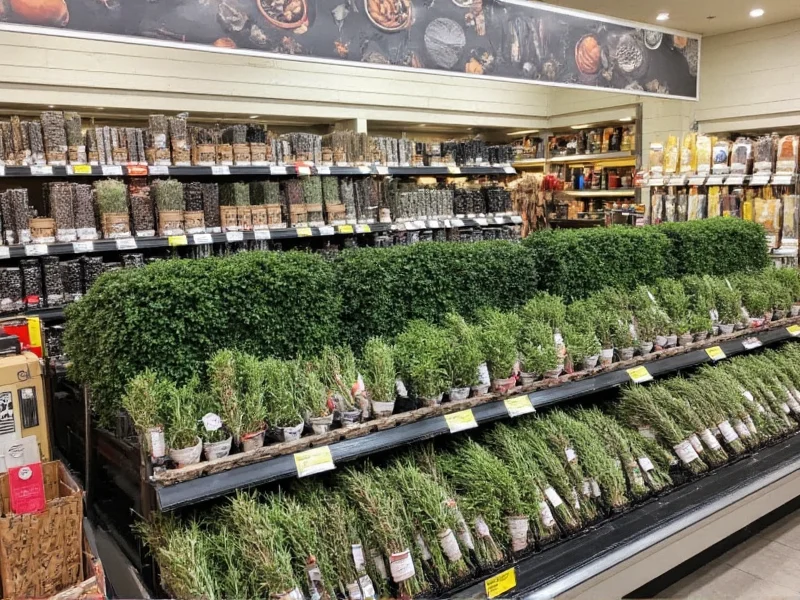Specialty grocery stores have transformed the way consumers approach food shopping, and Thyme Market represents a thoughtful evolution in this space. Unlike conventional supermarkets, Thyme Market prioritizes quality over quantity, creating an intentional shopping experience centered around fresh, seasonal ingredients. The market's distinctive approach combines the convenience of a neighborhood grocery with the expertise of a specialty food purveyor.
History and Development of Thyme Market
Thyme Market began as a single storefront in Portland, Oregon in 2010, founded by culinary professionals frustrated with the limitations of conventional grocery options. What started as a small shop specializing in fresh herbs and specialty ingredients has grown into a respected regional chain known for its carefully curated product selection and commitment to local producers.
The founders' vision centered on creating a space where home cooks and professional chefs alike could find exceptional ingredients without compromising on quality or ethics. This philosophy has guided Thyme Market's expansion, with each new location maintaining the same standards of excellence that defined the original store.
Product Offerings and Sourcing Philosophy
Thyme Market distinguishes itself through its rigorous sourcing standards and thoughtfully selected inventory. Rather than carrying thousands of SKUs like conventional supermarkets, the market focuses on approximately 2,500 carefully chosen products that meet their quality criteria.
| Product Category | Special Features | Local Sourcing Percentage |
|---|---|---|
| Fresh Produce | Organic, seasonal, pesticide-free | 85% |
| Meat & Seafood | Humanely raised, wild-caught, sustainable | 70% |
| Dairy & Eggs | Grass-fed, pasture-raised, hormone-free | 90% |
| Pantry Staples | Small-batch, artisanal, non-GMO | 60% |
The market's namesake herb, thyme, symbolizes their broader commitment to fresh, aromatic ingredients that elevate home cooking. Their produce department features an extensive selection of fresh herbs, including multiple varieties of thyme, rosemary, and other culinary essentials that often prove difficult to find in standard grocery stores.
Community Integration and Sustainability Practices
Thyme Market has established itself as more than just a grocery store through its deep community involvement. Each location partners with local farms, food producers, and community organizations to create a genuine neighborhood hub.
Their sustainability initiatives include:
- Zero-waste packaging options for bulk goods
- Comprehensive recycling and composting programs
- Energy-efficient store design with natural lighting
- Regular food donation programs to local food banks
- Seasonal workshops on cooking, gardening, and sustainable living
These practices reflect Thyme Market's understanding that modern consumers increasingly value transparency and environmental responsibility in their food purchasing decisions. The market publishes an annual sustainability report detailing their progress toward environmental goals.
Shopping Experience and Customer Service
Visitors to Thyme Market consistently note the distinctive shopping experience that sets it apart from conventional grocery options. Knowledgeable staff members, many with culinary training, provide personalized recommendations and preparation tips. The store layout encourages discovery with seasonal displays and thematic product groupings.
Thyme Market has successfully balanced the specialty market experience with practical convenience. Their mobile app allows customers to browse products, check real-time inventory, and place orders for pickup or delivery. Despite technological integration, the market maintains a human-centered approach with staff available to answer questions and offer cooking suggestions.
Comparing Thyme Market to Other Grocery Options
When evaluating thyme market grocery store options against conventional supermarkets and other specialty markets, several distinctive features emerge:
- Product selection: More curated than conventional supermarkets but broader than single-product specialty stores
- Pricing: Premium pricing reflecting quality and sourcing standards, with frequent value offerings on seasonal items
- Expertise: Staff knowledge exceeds typical grocery stores, with many employees having culinary backgrounds
- Atmosphere: Designed for leisurely shopping rather than quick in-and-out trips
For shoppers seeking thyme market fresh produce and specialty foods without the impersonal nature of large chain stores, this market provides a compelling alternative. The focus on local relationships creates a shopping environment where customers often develop personal connections with both staff and producers.
Planning Your Visit to Thyme Market
For those interested in exploring what thyme market organic products have to offer, strategic planning enhances the experience. The market's website provides detailed information about current seasonal offerings, upcoming events, and location-specific features.
Weekday mornings typically offer the most relaxed shopping experience, while weekend afternoons feature cooking demonstrations and producer meet-and-greets. Many regular customers recommend following Thyme Market's social media channels for real-time updates on special arrivals and limited-quantity items.











 浙公网安备
33010002000092号
浙公网安备
33010002000092号 浙B2-20120091-4
浙B2-20120091-4